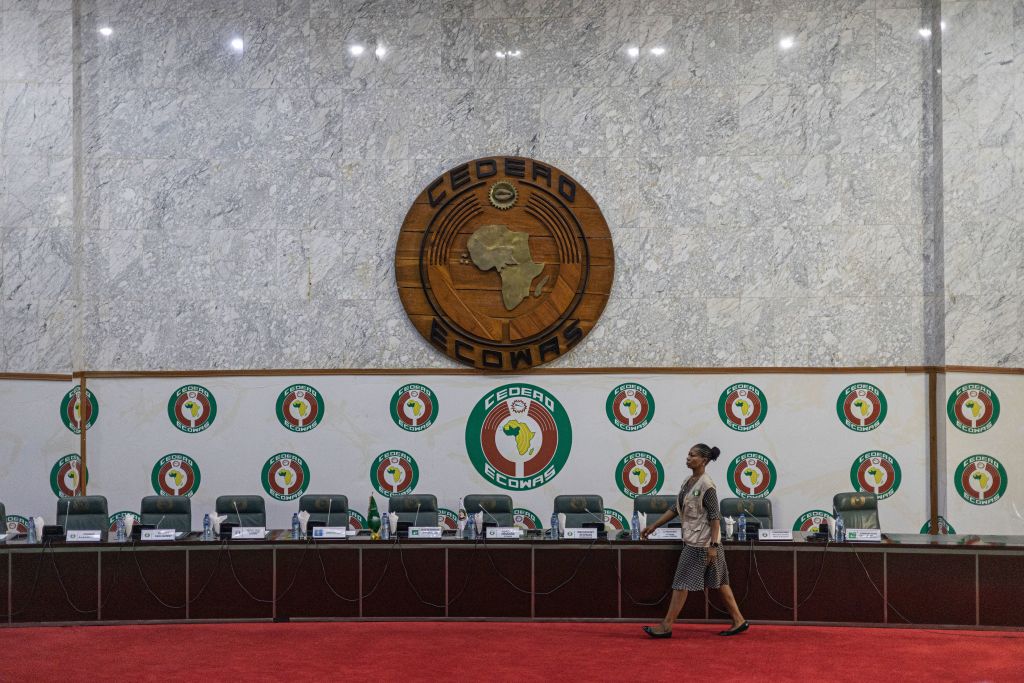ADF STAFF
Some have called it West Africa’s “Brexit.” Others referred to Burkina Faso, Mali and Niger as “the three rebels” after their decision to leave the Economic Community of West African States (ECOWAS).
Whatever it’s called, the defections reverse decades of economic integration and spell trouble for regional security and civilian governance, threatening to further destabilize the restive Sahel and West African regions.
“If they decide to go ahead and leave, it will become a very big problem, economically and politically,” Seidik Abba, president of the CIRES think tank, told Reuters. “The stakes are the highest for the people from these three countries.”
Security experts have urged West African countries to collaborate and share intelligence to combat the expansion of violent extremist insurgencies that feed off corruption, neglect and abuse as much as ideology.
If Burkina Faso, Mali and Niger leave ECOWAS, a dozen nations would remain in the bloc: Benin, Cabo Verde, Côte d’Ivoire, The Gambia, Ghana, Guinea, Guinea-Bissau, Liberia, Nigeria, Senegal, Sierra Leone and Togo.
“The departure from ECOWAS will have catastrophic consequences for the ability to respond to the many security challenges facing this region,” Abba predicted.
ECOWAS suspended and sanctioned all three countries after their military coups in an attempt to pressure them to return power to democratically elected leaders.
BBC Africa analyst Beverly Ochieng said ECOWAS was created as an economic bloc but increasingly has had to respond to governance issues.
“They’ve had to set up political organs which would then address political disputes within countries,” she said on the February 2 edition of the BBC’s Africa Daily podcast. “They’ve had to modify their charter over the years to be able to include clauses where they can mediate politically.
“Underlying everything, you cannot have a sustainable economy if there’s political upheaval, if there’s insecurity.”
Although the economic sanctions were biting, the three junta-led countries now stand to lose access to a nearly $702 billion market. Experts say the defections could worsen widespread food insecurity in the region and backfire on already fragile economies.
Burkina Faso had an annual per capita gross domestic product of $1,510 in 2020, while Niger’s was $1,410 in 2020 and Mali’s was $2,640 in 2023.
Exiting the regional bloc would expose the three countries to increased tariffs and restrictions on financial flows and the movement of goods.
Edwin Yingi, a postdoctoral fellow in the department of political sciences at the University of South Africa, said the exit of the three nations presents major challenges for ECOWAS, as it undermines many of the bloc’s founding principles.
“If their mission to pull out from ECOWAS becomes successful, then we are going to see the hindrance of free movement of people in the region, which will affect trade, foreign direct investment and economic cooperation,” he told Anadolu Agency.
Millions of people from the three landlocked nations have settled in neighboring states. More than 5 million Burkinabe, Malians and Nigeriens live in Côte d’Ivoire alone. About 80% of Niger’s trade has moved across its 1,500-kilometer border with Nigeria.
“We could see one of the major movements of people that we have seen in decades — citizens across the subregion packing their things and heading back home,” Kwesi Aning, a Ghana-based security analyst, told Reuters.
In Mali’s capital, Bamako, health worker Nagnouma Keita told Reuters she was apprehensive.
“Our three states cannot survive on their own, especially since they have no access to the sea,” she said. “I believe that, in reality, we are imposing an embargo on ourselves.”

